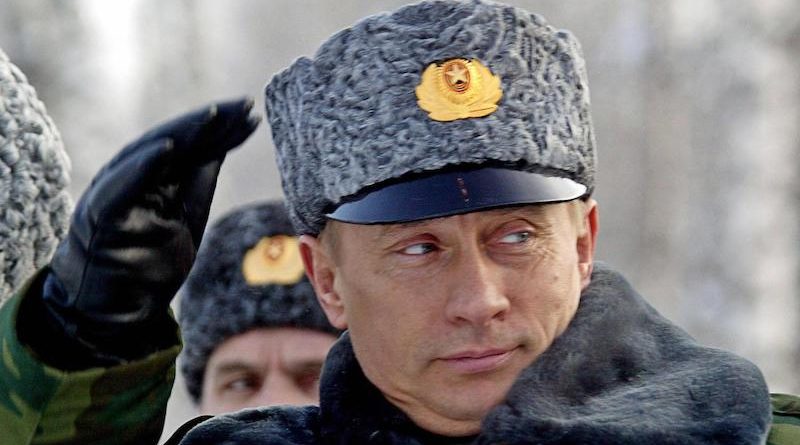Succession and Punishment
By Chris Miller, Assistant Professor of International History at The Fletcher School of Law and Diplomacy at Tufts University
The news last week that Russian President Vladimir Putin does not plan to retire when his term as president ends in 2024 was not particularly surprising. Putin has ruled the country for more than two decades, including for four years in 2008-2012 during which, because of the Russian Constitution’s pesky term limits, he had to serve as prime minister rather than president. It was never plausible that he would simply ride off into the sunset. Instead, he declared, he will amend the constitution to formalize a yet undefined State Council, which he seems likely to lead.
The question of succession does, however, present Putin with a puzzle that he has only begun to solve. The issue has bedeviled Russian leaders for centuries. There is an obvious risk in staying around for too long. Many of Russia’s tsars would have done well to have taken early retirement, before they built up powerful enemies who had them strangled (Paul I), bombed (Alexander II), or shot, bayoneted, and doused with acid (Nicholas II). The Soviets, perhaps surprisingly, had a softer touch, with deposed leaders generally allowed to retire in Siberian obscurity.
In the Soviet period, it was the ousted deputy leaders, men who came too close to taking power, who were often killed. The long-serving secret police chief Lavrenty Beria was shot through the forehead in 1953, while Joseph Stalin’s rival Leon Trotsky was felled with an ice pick wedged two inches deep in his skull. More recently, the assassination of former Deputy Prime Minister Boris Nemtsov on the street outside the Kremlin in 2015 provided a sobering reminder that political violence related to succession questions is not safely confined to the history books.
Russia’s rulers are trying hard, therefore, to keep the succession process as controlled as they can. Given the complicated history, one might have expected Putin to worry about surrendering the reins of presidential power in 2024, even if he will stay on at the State Council. Indeed, meeting with a group of veterans several days ago, he was reportedly asked to stay in office, with the veterans requesting that “his work as president running the country not be limited to a specific duration.”
Why not become president for life? It is a path trodden by many dictators before him. Yet Putin told the veterans that his staying would put Russia on the road toward stagnation: “It would be alarming to return to the situation in the mid-1980s, when the leaders of the state remained in power until the end of their days … while not providing the necessary conditions for the transformation of government.” He was thinking, of course, of the succession of Soviet leaders in the 1980s—Leonid Brezhnev, Yuri Andropov, Konstantin Chernenko—who were each so old and ill that government ground to a halt.
At the time, U.S. President Ronald Reagan joked that he couldn’t even negotiate with Soviet leaders because “they keep dying on me.” The Soviet leader who lived long enough to negotiate with Reagan—Mikhail Gorbachev, who launched the reform process that brought down Soviet communism—had the energy that Putin evidently desires in his successors. But Putin is looking for a very different set of results.
Many Russians, especially those who support the Kremlin, like to envision an alternate version of history whereby Andropov, who ruled the Soviet Union from 1982 to 1984, had been healthier and lived longer. Before catapulting to the country’s highest office, Andropov had run the KGB for more than a decade, so he knew the Soviet system’s weaknesses. He backed a campaign against corruption, spearheaded by the KGB, that was intended to purge crime and make government more efficient. He realized the need for reforms but wanted them implemented in a way that threatened neither the anti-Western foreign policy nor the authoritarian politics that constituted the core of the Soviet system. Perhaps if he had lived longer, many imagine, Andropov’s reforms might have saved the Soviet Union.
The rosy interpretation of Putin’s constitutional rejiggering is that it will enable him to select a successor who can implement an Andropov-style agenda of reforms to make the bureaucracy more efficient and effective and thereby strengthen and preserve Russia’s political and economic structure. Seemingly to this end, Putin has already appointed a new prime minister, Mikhail Mishustin, a bureaucrat best known for skillfully using technology to make Russia’s tax collection more efficient. More appointments of younger technocrats may follow.
The city-state’s founding father, Lee Kuan Yew, continued to serve in the cabinet after he retired as prime minister, guaranteeing that everything would stay as regimented and efficient as it was under his personal rule. Similarly, Chinese leader Deng Xiaoping continued to shape Chinese politics long into his retirement in the 1990s, even though his only formal position was as honorary president of China’s association for bridge, his favorite card game.
The difference between this scenario and Putin’s succession, however, is that Russia is not hyper-efficient Singapore. Nor is it like Deng’s China, with its booming economy amid economic reforms. No one doubts that, like Deng or Lee, Putin can continue yielding power from behind the scenes. The question is whether the continuity Putin promises is a good thing for Russia.
This piece was republished from Foreign Policy.

